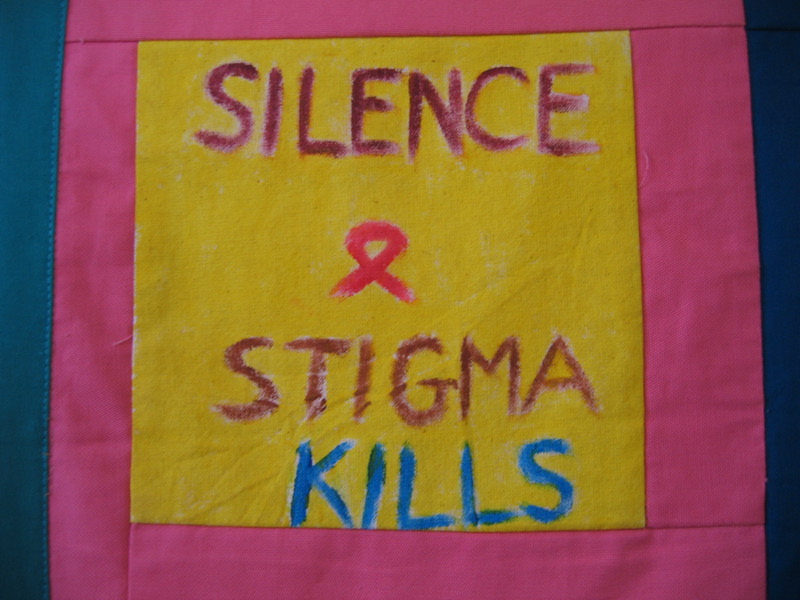To Tell or Not to Tell

In 2008, I worked with two South African sisters who sang in a gospel choir that was part HIV support group, part AIDS activist organization, and part performance troupe. Both sisters had HIV. Both were passionate about their cause. And both led what many Americans might think of as a strange double-life when it came to disclosure of their health status: They were openly HIV positive in front of international audiences in downtown Durban and abroad, which earned them acclaim and helped them to solicit donations, but in their own townships they were more guarded. It is a common predicament for those infected with HIV: to tell or not to tell. But why did these sisters so willingly share their status in one context, yet veil it in another?
I spent nine months untangling this question. The answer led me to understand that many people in South Africa must navigate dueling responsibilities—one shaped by scientific medicine and international aid, the other shaped by concerns for family and friends. It also revealed that doctors, activists, and organizers who collaborate directly with those living with HIV/AIDS—to understand their worldviews—will be more effective in helping to reduce the stigma of the disease.
I met and became friends with the sisters Amahle and Zethu (pseudonyms) in 2008 during fieldwork in Durban, South Africa. I was there to study culture and communication about HIV/AIDS in isiZulu—the language of over 10 million Zulu speakers today—and English.
At the time, the HIV infection rate in South Africa was about 25 percent. Despite this high rate of incidence, there was a pervasive, sometimes violent HIV stigma in the townships. People were ostracized, thrown out of their homes, beaten, and in rare cases even killed for revealing their status, sometimes by members of their own family.
Amahle and Zethu’s involvement with the gospel choir had meant disclosing their status on the international stage. They were proud of this brave stance. Zethu even bragged that a person could just log on to the Internet and find the sisters, their HIV statuses, and their life stories. This was an exaggeration, but one could find pictures and information about the choir online. A choir member once told me that it wasn’t a problem to use real names in my research, though this person’s family members warned that disclosure might affect their future romantic partners or family.
Amahle had begun to attend a Christian church group on Wednesday evenings. One day in June, as I was sitting on a couch in the living room of the sisters’ four-room cinder-block home, I asked Amahle if I could go with her. “No,” she replied, “it is too soon.” Though happy to be public with her internationally targeted choir work, in this particular social circle she was either not ready or felt it would be inappropriate. My presence as a white American researcher would have raised difficult questions, even if I was careful to avoid inadvertently disclosing her status. This was when I began to realize that the choir members were dealing with two overlapping, sometimes conflicting perspectives.
According to the first, individuals have a responsibility to disclose their status in order to help fight HIV stigma. This is rooted in U.S. and European egocentric cultural traditions, which focus on individual character or virtue. According to the second perspective, people should use caution and often withhold disclosure in order to respect and protect family and friends from stigma by association. This is rooted in black South African, and Zulu, sociocentric cultural traditions, which focus on society and social relationships. Both types of traditions have been part of South Africa for hundreds of years—since the time of the first Christian missionaries, if not before.
Though Amahle and Zethu were proud of their disclosure in one context, when it came to social interactions in their home communities, they, like other choir members, drew more often from the framework of respecting their responsibilities to kin and community. This was not so much a moral conflict as a conflict of moralities.
Doctors, researchers, and aid workers are aware that HIV stigma continues to be a vast problem in South Africa. Even after the rollout of antiretroviral drugs (ARVs) in 2004 made HIV treatment more widely available, many people are still afraid to go to the hospital to pick up their drugs, to take them, or even to get tested, because someone they know might see them. One reason activists have not been as effective at combatting HIV stigma in South Africa as in other parts of the world is that they approach the problem from an egocentric perspective—that is, they focus on the views and beliefs of individuals—rather than a sociocentric perspective, which would allow them to address the roots of the stigma in culturally appropriate ways.
I was lucky enough to see two organizations make strides toward destigmatizing the disease. Not surprisingly, both included black South Africans living with HIV in core aspects of their decision making. One organization had a community advisory board on which I participated with several choir members. Another, for which Zethu worked, was co-led by an American doctor and a choir member. These organizations were evaluating things like testing kits that could be used in the privacy of one’s home, and working with traditional Zulu healers, who were often the first medical practitioners that infected people saw.
Amahle and Zethu’s story teaches us that people interested in AIDS treatment and activism in Southern Africa need to be mindful of cultural standpoints—not just the obvious, surface-level cultural differences, such as the fear that HIV can result from witchcraft, but also people’s deeper, implicit assumptions about morality, and their fundamental responsibilities to themselves and to their families and communities. These assumptions are complex and difficult to grasp; I only began to understand them after nine months of intensive fieldwork.
Activist and aid organizations will be more successful if they collaborate with target populations at every stage of their projects. People such as Amahle, Zethu, and other choir members—people who manage the collision of moral worlds—understand the complexities of overlapping moralities better than any outsider, and that is why they are the key to successful health interventions.
































